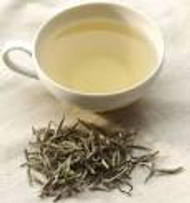Which Is Better: White Tea, Black Tea, Green Tea, Oolong Tea – Oh My?
Posted by Simple Girl on 23rd Feb 2016
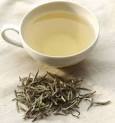
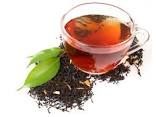
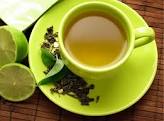
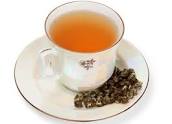
According to Chinese myth, tea was discovered by the Emperor Shennong, a semi-divine figure who lived almost five thousand years ago and is also credited with first taming oxen, inventing plows, clearing land for agriculture, and creating the catalogue of medicinal plants that became the basis of traditional Chinese medicine. As Shennong sat under a Camellia tree one fall afternoon, a dry leaf drifted into a pot of water he was boiling. Delighted by the smell, Shennong not only enjoyed the resultant infusion for its flavor but also researched its medicinal properties...and we've been in love with tea ever since. Or so the story goes.
Tea offers all kinds of health benefits, and it's emotionally appealing, too - there's nothing quite like a cuppa to soothe the soul after a rough day. But which is better? White, black, or green tea? You're about to find out!
Types of Tea
Tea is made from the dried leaves of the Camellia sinensis evergreen shrub. Enzymes cause the leaves to oxidize and darken after they are harvested. Because heating stops the oxidization process, the sooner leaves are processed after harvesting, the lighter the tea. Unwilted young leaves that are minimally oxidized become white tea. Slightly older leaves, barely oxidized, become green tea, and wilted, bruised and fully oxidized leaves make black tea. Oolong, the fourth type of tea, is formed by partial oxidization. Mint, chamomile, and other herbal "teas" are not really tea at all, but rather herbal infusions.
Medicinal Components of Tea
Teas have two main medicinal components: caffeine and polyphenols. Caffeine offers an increase in mental alertness and may have other health benefits for adults including reducing the risk of Parkinson's disease and postprandial hypotension. The polyphenols in tea have been reported to kill cancer cells in laboratory environments and may slightly reduce your risk of cancer and other conditions like cardiovascular disease.
So, Is One Better than Another?
All types of tea contain both polyphenols and caffeine, but in different quantities. White and green teas contain more polyphenols and less caffeine than black tea. Black teas contain the most caffeine and the least polyphenols. For most people, the ideal combination is drinking black tea in the morning for increased alertness and then switching to white or green tea later in the day so you won't have difficulty falling asleep.
So, Is All Tea Great for Me?
The canned and bottled tea drinks you find in supermarkets contain fewer polyphenols than freshly brewed tea and many have substantial amounts of added sugar. So don’t expect much medicinal effect from these premade products. Of course the higher the sugar content, the more reason to minimize use. Although some flavored, sweetened teas are delicious, the empty calories and chemical ingredients in some of these ‘teas’ far outweigh the benefits of the polyphenols in the tea component. In some cases, you may as well be drinking a soda.
Infusing Your Tea with Flavor
If you don't really like tea but want to get in on some of the health benefits it offers, try infusing your hot or iced tea with natural flavors or flavored stevia. Got mint? Crush a few leaves and toss 'em into your cup or glass of tea. Or get yourself an infuser and fill it with mashed up berries or citrus fruits and drop it in your cup for a few minutes to let the flavors blend. You'll get an added health boost along with the added flavor.
Bottom Line
Drinking tea in moderate quantities increases mental alertness and, in addition to an overall healthy diet and lifestyle, can have a modest protective effect against some medical conditions. Choosing the best type of tea is largely a matter of personal preference and how your body responds to caffeine.
What’s your favorite tea?

